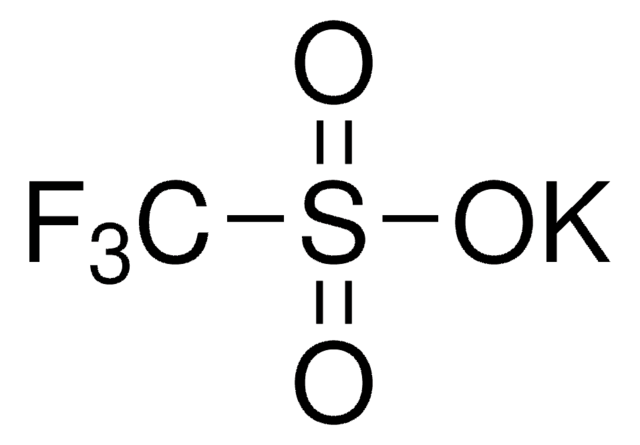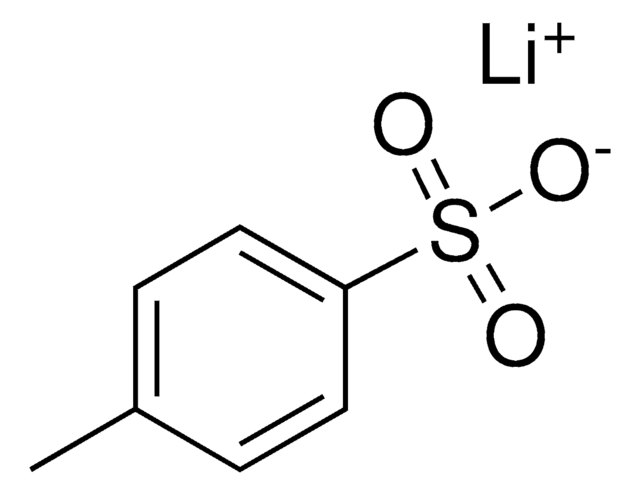481548
Lithium trifluoromethanesulfonate
99.995% trace metals basis
Synonym(s):
LiTf, Lithium triflate, Trifluoromethanesulfonic acid lithium salt
About This Item
Recommended Products
Quality Level
Assay
99.995% trace metals basis
form
powder
greener alternative product characteristics
Design for Energy Efficiency
Learn more about the Principles of Green Chemistry.
sustainability
Greener Alternative Product
impurities
≤60 ppm Trace Metal Analysis
mp
>300 °C (lit.)
application(s)
battery manufacturing
greener alternative category
SMILES string
[Li+].[O-]S(=O)(=O)C(F)(F)F
InChI
1S/CHF3O3S.Li/c2-1(3,4)8(5,6)7;/h(H,5,6,7);/q;+1/p-1
InChI key
MCVFFRWZNYZUIJ-UHFFFAOYSA-M
Looking for similar products? Visit Product Comparison Guide
General description
Application
- a polymeric layer for light-emitting electrochemical cells
- an electrolyte for lithium-ion batteries
- a recyclable catalyst for acetylation of alcohols and diacetylation of aldehydes
- a separator for supercapacitors
related product
Signal Word
Warning
Hazard Statements
Precautionary Statements
Hazard Classifications
Eye Irrit. 2 - Skin Irrit. 2 - STOT SE 3
Target Organs
Respiratory system
Storage Class Code
11 - Combustible Solids
WGK
WGK 3
Flash Point(F)
Not applicable
Flash Point(C)
Not applicable
Personal Protective Equipment
Choose from one of the most recent versions:
Already Own This Product?
Find documentation for the products that you have recently purchased in the Document Library.
Customers Also Viewed
Articles
Solid-state Li batteries: Review of solid electrolytes, ion conduction, structures, and electrochemical processes.
Solid oxide fuel cells and electrolyzers show potential for chemical-to-electrical energy conversion, despite early development stages.
Li-ion batteries are currently the focus of numerous research efforts with applications designed to reduce carbon-based emissions and improve energy storage capabilities.
Lithium-ion batteries offer high energy density and cyclic performance for portable electronic devices.
Our team of scientists has experience in all areas of research including Life Science, Material Science, Chemical Synthesis, Chromatography, Analytical and many others.
Contact Technical Service












